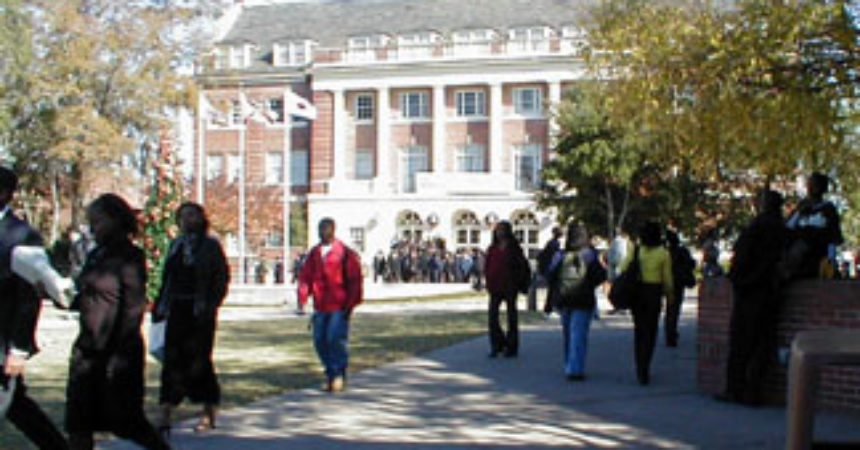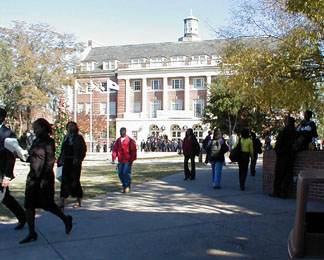
Local college students have major role in 2020 Census count
By St. Clair Murraine
Outlook staff writer
When the COVID-19 pandemic forced students off college campuses in Tallahassee, it disrupted plans to promote the 2020 Census on campuses nationwide.
Marilyn Stephens, an assistant Census regional manager, even made a trip to Tallahassee to map out a plan of action with administrators at FAMU, FSU and TCC. Having students counted in the census is major, considering what’s at stake, she said.
Especially to college towns like Tallahassee. Census information is used for funding roads, public transportation and health clinics. Even the Pell Grant, which thousands of students rely on to play tuition, is factored into the census, Stephens said.
Just as important, the census determines how many seats each state gets in Congress. It also sets the standard for affordable housing and funding for Title 1 schools.
Part of the plan that Stephens discussed with local college administrators called for the schools to engage students through face-to-face contact at social events and club meetings.
Then, coronavirus struck in March.
“All of those things were cancelled,” said Stephen. “We had done some things in targeting the homecomings and things like that in promoting the importance of the census.”
Students were just beginning to get the word on the process of completing census forms when the health threat kept them off campus.
The drive to get every college student counted is still on, although the number of positive coronavirus cases continues to mount in Leon County and Tallahassee.
“There is a lot at stake and we only get once every 10 years to reset the button,” Stephens said.

Photo special to the Outlook
Meanwhile, all three schools said they are engaging students to drive home the importance of completing the census questionnaire. FAMU, FSU and TCC said they are using social media to get the message to students who haven’t been on campus for the past three months.
FSU has even gone as far as to name Jarrett L. Terry as the school’s census liaison.
“Understanding the purpose, value and even the issues regarding completion of the census not only helps our students apply what they have learned in the classroom,” said Terry, Assistant Provost and Assistant Vice President for Academic Affairs. “It also familiarizes them with the communities in which they live now, and for some, in the future, after graduation.”
Ayanna Young, a media relations specialist in TCC’s Office of Communications and Marketing, said the college will use the time between now and the Oct. 1 deadline to remind students about providing the census information.
“Florida A&M University understands the importance of the census and the urgent necessity for everyone in our community to be counted,” FAMU said in a statement through Andrew J. Skerritt, Assistant Director of Media Relations. “Despite the crisis created by the global pandemic, we have made it a priority to remind our students of the need to fill out their census information.”
Reaching college students is so important that the Atlanta Region hosted a 2020 summit this past January for HBCU and Hispanic students leaders. Many of the students expressed at the time that they “didn’t know that was important to us,” Stephens said.
One of the key points that students have to remember about the census is that they can’t count on their parents to include them in the questionnaire if they live away from home. A student’s home is where they currently reside while attending college, according a 2020 Census news release.
Since the first census was taken in 1950, this is the first year that households will have three options to respond – online, by phone or mail. Those who haven’t responded by Aug. 11 could expect a census taker to knock on their door.
“We are telling people right now to avoid the knock,” Stephens said. “It takes less than 10 minutes to insure that you get your fair share over the next 10 years. There is no excuse. This is important. We only do it once every 10 years so we just want people to do it.”
Students who live in rented housing unit should work together to fill out one questionnaire for each household, according to the release. It added that they should include all roommates, including nonstudents, who live and sleep in the home most of the time.
“The question is will our numbers support our needs over the next 10 years,” Stephens asked rhetorically. “They will if everyone is counted.”







